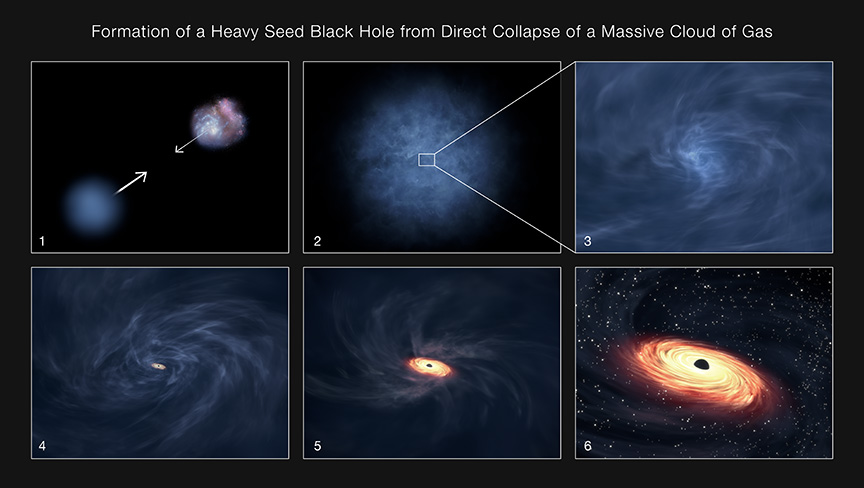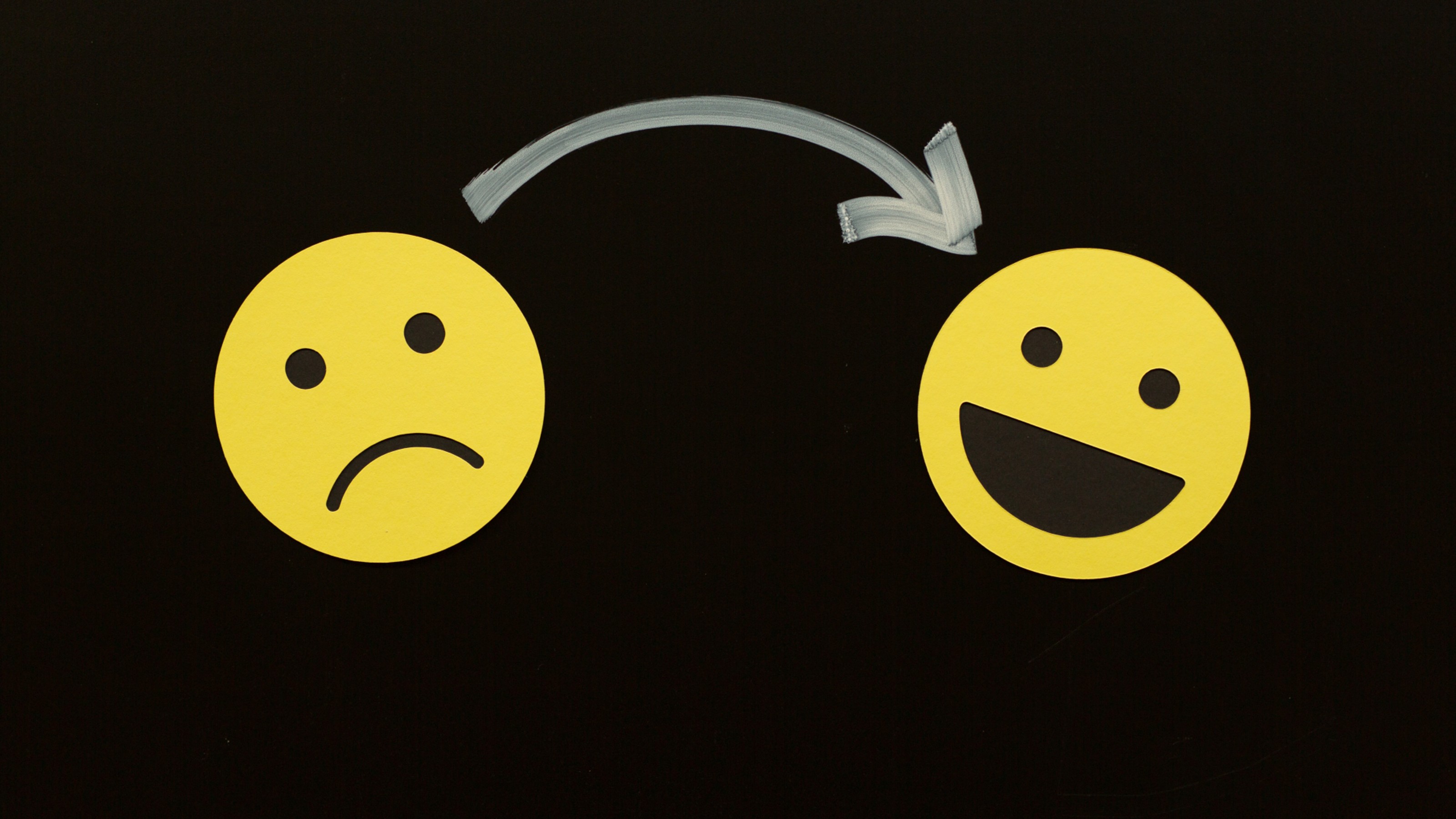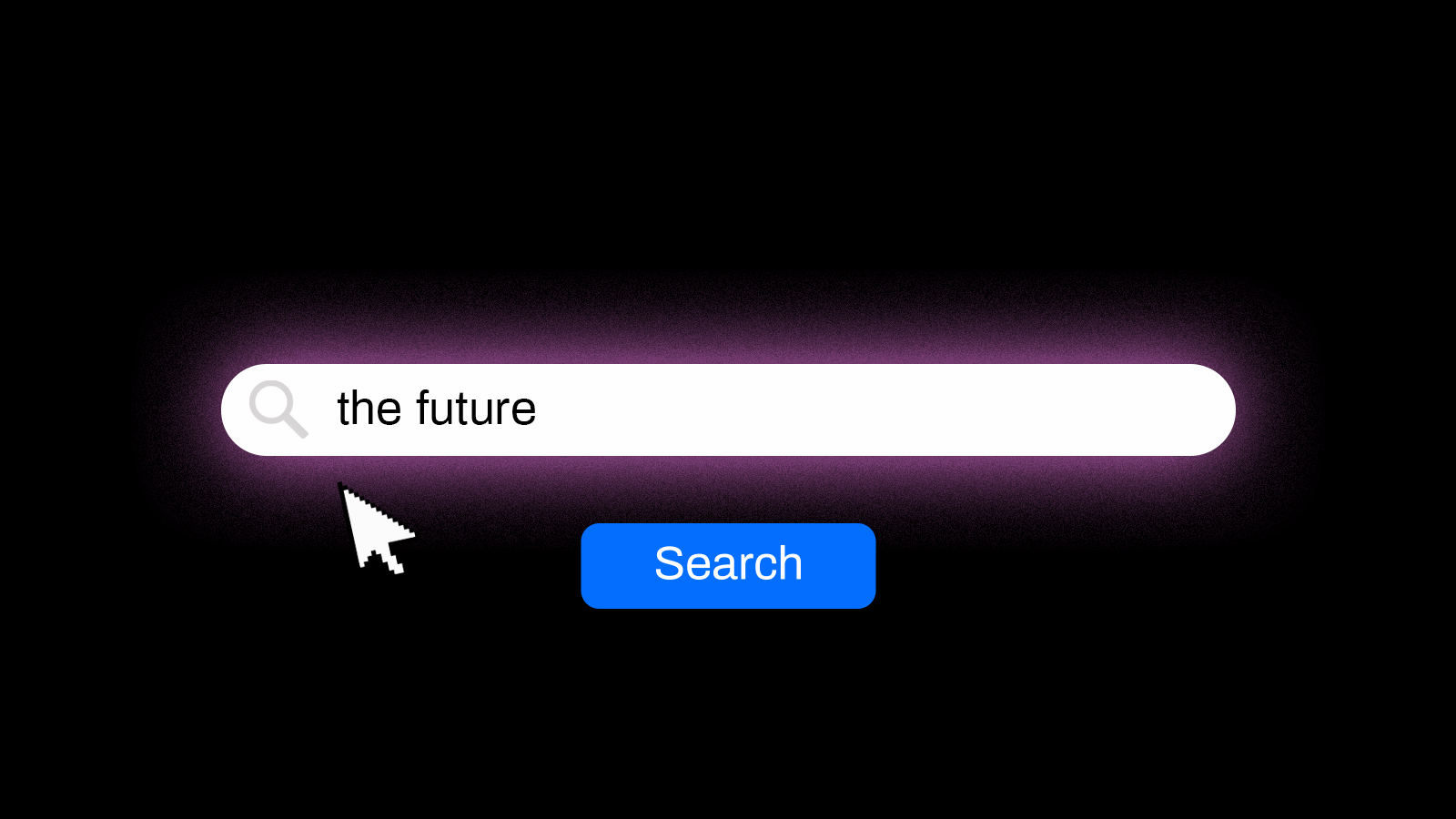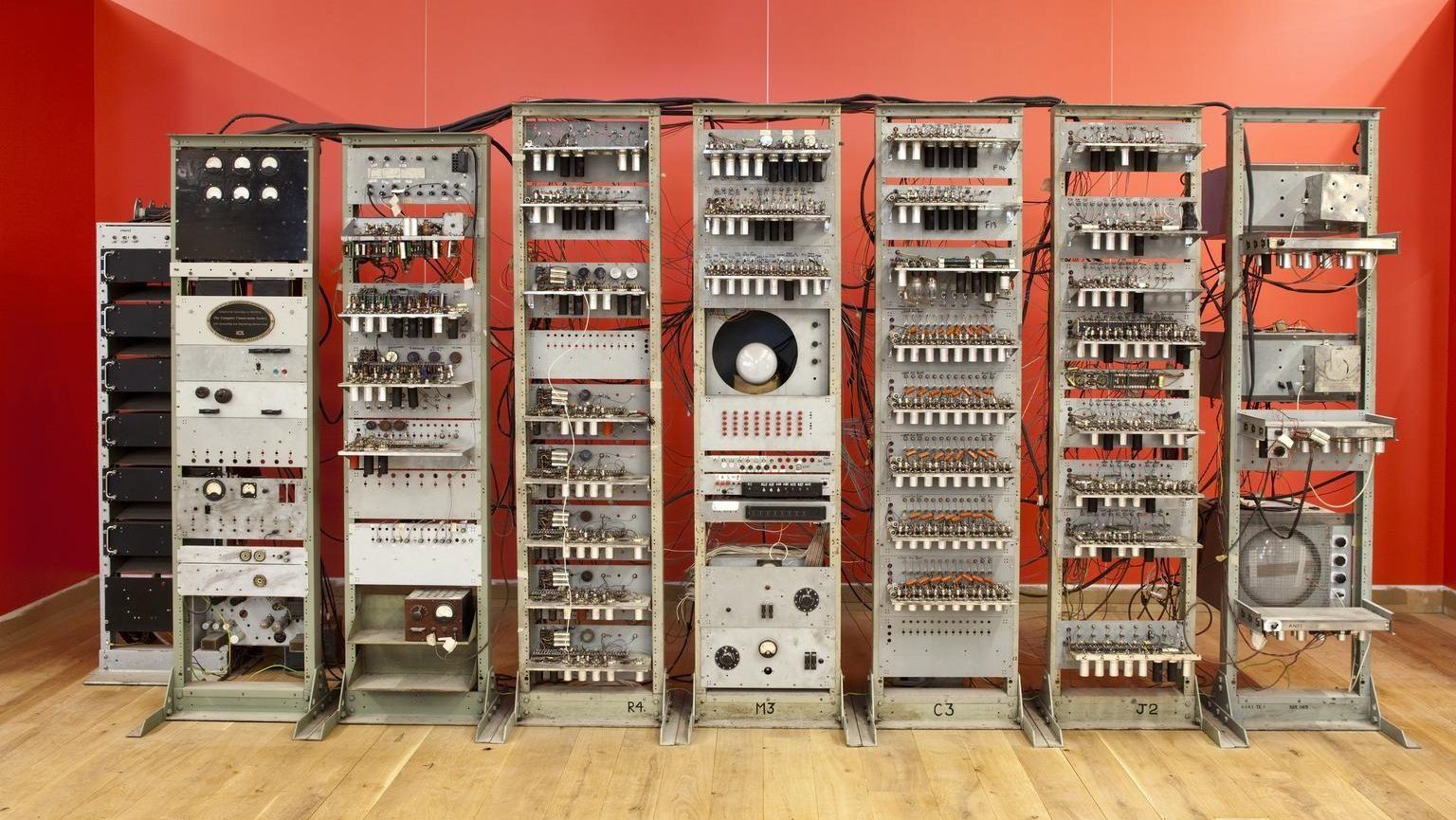To solve the transportation problem in a city, put everything online. Publishing raw data would enable people to run simulations and create proposals.
Question: What is the history of concealing research in America?
Michael Schrage: The notion of what constitutes adequate sharing has always been a problem. I mean, that's not an American issue, we're talking about a Galileo and Newton issue here. Individuals and communities have understandably different notions about what they wish to share and what they don't wish to share. This goes right back to playing in the sandbox, you know. Now, in science, we have the cultural phenomenon of peer review and that begs two questions, what's a peer and what's being reviewed? It's not enough if you're a sophisticated scientist, or frankly a sophisticated person, it's not enough to review the data, you know, what goes in and what goes out, you want to see the machine. You want to see the nature of the experiments. You want to see the code, now with digital stuff, you want to see the code, the software. Was it biased in any sort of way? Was there a bug that might account for some of the phenomenon that we're observing?
So there's a real tension here between what constitutes effective sharing and what constitutes the desire that many people have to make their science, their science. To make their research, their research. Not in a proprietary, ownership sense, but in the sense of, you know, it's a little too soon for me to completely open the kimono.
The complicating factor, just to build on that is, when you begin to inject market forces, when you begin to inject political forces, climate change, should I patent this finding? Do I want to license this to somebody who will give me lots of money to do research? You've now created a mix of motivations and incentives. Does it make more sense for me as a scientist to share my methodology, to show people how good my work is and to get credit from my peers? Or does it make more sense for me to make some of it secret so that I can get private funding to continue the research along a route that I consider very good and important?
I mean, it is amazing, I'm a child of an academic, a child of a science academic, and I grew up in a very, very elite research university environment. And I am astonished by what scientists are capable of getting away with, even prestigious scientists are capable of getting away with, in terms of withholding and sharing things. The ideal, the platonic ideal, is that, you know, it's like a--let's create a nice phrase here—it’s like a kibbutz and everybody shares. That science is a form of socialism and everybody shares the results and everybody shares their instruments. And to a certain extent, large parts of that are true, but there are very large parts where it's 70-80 percent accurate, and in that missing 20-30 percent, there are a lot of issues. A lot of issues.
Question: What can we do to fix it?
Michael Schrage: You know, as I get older, I have come to the conclusion that there are certain kinds of problems you don't look for solutions, you look for approaches. And if you asked me with a wave of the hands, what would be the one thing I would do to really encourage healthy sharing, because I can understand there's certain things that need to be withheld, or it makes sense to withhold or at least limit, I would make funding contingent upon disclosure rules. It used to be, just to give you a real world example, it used to be that scientists, medical researchers could publish their work in the New England Journal of Medicine, and other medical journals, without disclosing that some of their research had been financed by pharmaceutical companies or device companies. For completely understandable reasons, that concealment, that nondisclosure is no longer acceptable.
I feel that those same kind of pressures can be brought to bear to people who don't share code. If you are running a computer model that predicts the earth is getting warmer, the atmosphere is getting warmer and it will go up 7 degrees Celsius in the next 50 years, that the oceans will rise, the coral will die, etc., show me your code. Show me the code. I don't want to just see the equations, show me the code. Because, and I'm saying this as somebody who's written code, I know how you game the code to kind of put a thumb on the scale. And some of these things are done subconsciously or unconsciously.
They have a saying in the open source development community, many eyes shallow bugs. The more people that see the code, the quicker you spot the bugs and eliminate them. It's good enough for software, good enough for science.
Question: Are there leaders in the open science movement?
Michael Schrage: There are individuals who are leaders. There are certain, because I think the Royal Society in the UK has done a better job than our own AAAS of aggressively and energetically promoting disclosure and sharing of code. That's not to say that the AAAS has done a bad job, I actually believe that there are forces there where they're trying to push for more openness in science. But established institutions, particularly research universities and the tenured faculty therein, I think, should step up.
Question: What would be the incentive for scientists to disclose research?
Michael Schrage: They already have, they already do it! It's really important that we deal with the premise of your question. Many scientists have already been doing these things. There are many cultures and sub-cultures within science where mentoring and sharing and helping people out and picking up the phone or sending, that's not an aberration at all. I'm not asking people to do things that are inimical to culture. The incentives are oftentimes ego related and opportunity related. People collaborate because it makes sense for them to collaborate. We should be promoting free exchange.
There are complicating factors, if your school says, if your institution says anything that you invent while you are on the faculty is our property, not yours, or your compulsory license for that, that creates tensions. Should it be a 50/50 split? An 80/20 split? What should the split be?
So what we're talking about here are tensions and tradeoffs. What we really have to address is, what are the reasonable and rational and fair ways to manage those trade offs. We're not asking people to behave abnormally or against their best interest. All policies that ask people to behave against their best interests are doomed to fail.
Question: Who would make the rules?
Michael Schrage: Oh, again, you know, believing as I do in good governance and democracy, I would like government funding agencies to insist that taxpayers, when our taxes pay for something, when Europeans' taxes pay for something, when Asian taxpayers pay for something, that these publicly-funded science funders, foundations, that they make it a condition of their funding that people disclose in the manner that makes sense. Not just the findings, but the code. It should be throughout the value change of knowledge and discovery, not just black box.
Question: Wouldn’t we still have the problem of privately funded research?
Michael Schrage: No. No. If people want to, if you have something, you know, now again, this is turning into an economics kind of conversation, which I'm quite comfortable having. Here is Apple, if Apple versus Google, okay? Apple has decided to, and Facebook, these companies have what we would call walled gardens. They limit the amount of interoperability and sharing. There are some walls, there are some windows. Okay? Google, more of an open source kind of thing. It's easier to interoperate with Google. Their business model is different, they want to sell more advertising. What you want, if you're in the private sector, is what's the reason that we have to share and collaborate? And this is the classic question, what many organizations have discovered amidst the digital revolution, is that it's more profitable, it's more reasonable, it's better business to share. Not necessarily everything. By the way, I don't necessarily want everything shared. I just want to change, to use your word, I want to change the incentive structures associated with sharing. I do not want proprietary to be the default position. I want it to be a secondary or tertiary default. I don't want it to be the prime option, I want it to be a lower down in the queue option. I want the default to be, let's err on the side of being open rather than on the side of being closed.
I'll give you a really good example. If I were running the City of New York, if the City of New York came to me—now, there's a slight complication here, because of terrorism sort of issues, okay? So we have to deal with, but if the City of New York came to me and said, "Michael, what's the fastest, best, cheapest thing that we could do to improve transportation in New York?" I would say, "Put everything up online. Let people be able to run analytics and observe how the subways are running, how the busses are running, what times are peak times for congestion, what parts have people figured out clever work-arounds. Enable people to have raw data so they can run simulations and come to you with proposals for reducing congestion times, doing better link-ups between trains, subways, busses, etc., intermodal things. Make it more transparent. Make transportation more transparent. We'll call it the Trans Initiative.
Question: Could crowd sourcing ideas help solve the transportation problem?
Michael Schrage: Absolutely. I think it would be a fantastic thing if the Mayor of New York, currently Mayor Bloomberg, who could bloody well afford it, instead of basically saying, "Nope! Nobody can go into Times Square," there should be the, that would be a great idea, the Bloomberg prize in transportation. Minimizing congestion design constraints for improving quality of transportation and quality of life, because there is such a thing as perverse outcomes.
I'll tell you a true story in that regard. For reasons I won't bore you with, I became an expert in the history of traffic lights. It is a true story that New York, for almost two years, tried to economize on traffic lights by eliminating the amber light. They got rid of the middle light and they went from red and green because it would save, it would save money, it was cleaner, it was binary. Let's just say that the accident rate went up rather significantly. So always, you've got to come to grips with the notion that transportation isn't just about cars and streets. It's an eco system that deals with people. You know, people watching this, probably, it's worth their time looking at Tom Vanderbilt's book on traffic, because traffic is as much a story of human behavior as it is about technological innovation. Prizes that come up with clever ways of aligning human behavior and technological innovation, great idea, fully supportive.
Recorded on January 22, 2010





